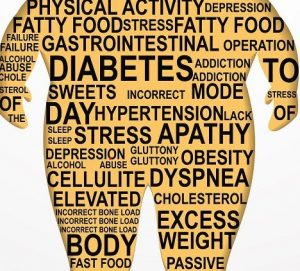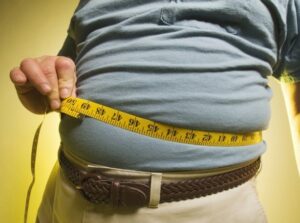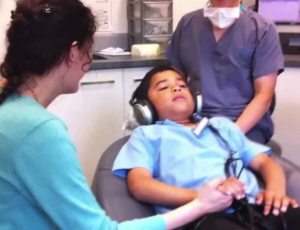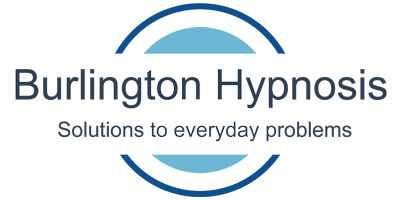Obesity I Smoking I IBS I Pain Relief I Stress and Phobias I Surgical I Oncology I Cardiac I Prenatal & Pediatric I Addiction I Fibromyaligia I HIV
As of 12/04 there are more than 5,000 research studies dealing with hypnosis and its benefits currently being conducted worldwide according to the National Center for Biotechnology Information. We offer pain, IBS, and stress relief hypnosis, as well as bad habit hypnotherapy and much more in Burlington, MA. Find out how hypnotherapy can help various conditions below.
Researching Organizations
- American Society of Clinical Hypnosis
- Society for Clinical and Experimental Hypnosis
- International Journal of Clinical and Experimental Hypnosis
- American Psychological Association
Obesity
 Hypnosis Subjects Lost More Weight Than 90% of Others and Kept it Off Reviewed 18 studies comparing a cognitive behavioral therapy such as relaxation training, guided imagery, self-monitoring, or goal setting with the same therapy supplemented by hypnosis. Those who received the hypnosis lost more weight than 90 percent of those not receiving hypnosis and maintained the weight loss two years after treatment ended. J Consult Clin Psychol. 1996;64(3):513-516.
Hypnosis Subjects Lost More Weight Than 90% of Others and Kept it Off Reviewed 18 studies comparing a cognitive behavioral therapy such as relaxation training, guided imagery, self-monitoring, or goal setting with the same therapy supplemented by hypnosis. Those who received the hypnosis lost more weight than 90 percent of those not receiving hypnosis and maintained the weight loss two years after treatment ended. J Consult Clin Psychol. 1996;64(3):513-516.
Hypnosis Over 30 Times as Effective for Weight Loss Treatment included group hypnosis with metaphors for ego-strengthening, decision making and motivation, ideomotor exploration in individual hypnosis, and group hypnosis with maintenance suggestions. Hypnosis was more effective than a control group: an average of 17 lbs lost by the hypnosis group vs. an average of lbs lost by the control group Consulting and Clinical Psychology, 54, 489-492.
Two Years Later: Hypnosis Subjects Continued To Lose Significant Weight 109 people had treatment for weight with or without hypnosis. After 9-weeks both groups lost significant weight. At 8-month and 2-year follow-ups, the hypnosis subjects were found to have continued to lose significant weight, while those in other group showed little further change. Journal of Consulting and Clinical Psychology (1985)
Hypnosis can more than double the effects of traditional weight loss approaches Review of 5 weight loss studies showed that hypnosis can more than double the effects of traditional weight loss approaches. U. Conn, Journal of Consulting and Clinical Psychology in 1996 (Vol. 64, No. 3, pgs 517-519)
Hypnotic enhancement for weight loss treatments Hypnosis versus no hypnosis the average short-term weight loss was 6 lbs for those not using hypnosis and 11.83 lbs with hypnosis. Over long term the average loss without hypnosis remained at 6 lbs, with hypnosis jumped to 14.88 lbs. What is impressive about these results is that doing hypnosis under controlled conditions is extremely difficult, and to have the research indicate that people are losing anywhere from about 2 to on average 16 1/2 times more weight under hypnosis than when they do not use it, clearly indicates that hypnosis should be used by anyone who is serious about weight loss and that benefits of hypnosis increased substantially over time. Kirsch, Irving (1996) Journal of Consulting and Clinical Psychology, 64 (3), 517-519
Hypnotherapy in weight loss treatment 60 females at least 20% overweight and not involved in other treatment. Participants interviewed about family background, educational, and their belief as to their hypnotizability. The group was split into hypnosis and non-hypnosis groups with both groups being given weight-loss  behavioral treatments and counseling. Results: hypnosis group lost an average of 17 lbs at the 6-month follow up. Non hypnosis group only lost 1/2 pound. They also found that “hypnotizability” and social and educational backgrounds had nothing to do with the results. Cochrane, Gordon (1986) Journal of Consulting and Clinical Psychology, 54, 489-492
behavioral treatments and counseling. Results: hypnosis group lost an average of 17 lbs at the 6-month follow up. Non hypnosis group only lost 1/2 pound. They also found that “hypnotizability” and social and educational backgrounds had nothing to do with the results. Cochrane, Gordon (1986) Journal of Consulting and Clinical Psychology, 54, 489-492
Effectiveness of hypnosis for weight management 109 people in 2 groups for a 9-week study. 1st group treated diet and exercise habits with no hypnosis. The 2nd group had same diet and exercise and received hypnosis. After 9 weeks, not surprisingly, both groups lost weight. After 8-month and 2-years: 1st most gained most of their weight back. The 2nd group continued to lose weight during both intervals, and the studies showed that far more people in the hypnosis group met their long-term weight-loss goals. The hypnosis group continued the eating and exercise habits while the non-hypnosis group did not. There is no magic pill for weight loss. It is clear that hypnosis supports diet and exercise adherence. Bolocofsky, David N. (1985) Journal of Clinical Psychology, 41 (1), 35-41
Smoking
90.6% Success Rate Using Hypnosis Of 43 consecutive patients undergoing this treatment protocol, 39 reported remaining abstinent at follow-up (6 months to 3  years post-treatment). This represents a 90.6% success rate using hypnosis. Int J Clin Exp Hypn. 2001 Jul;49(3):257-66. Barber J.
years post-treatment). This represents a 90.6% success rate using hypnosis. Int J Clin Exp Hypn. 2001 Jul;49(3):257-66. Barber J.
95% Success Rate Using Hypnosis with NLP A comparison of hypnosis to quit smoking and hypnosis combined with NLP reported a 95% success rate using hypnosis combined with NLP and 51% using hypnosis alone. Smoke Free International http://www.smokefreeinternational.com/report.php
90% Success Rate with Hypnosis Authors report a success rate in smoking abstinence of over 90% with hypnosis. MMW Fortschr Med. 2004 May 13;146(20):16.
87% Reported Abstinence Using Hypnosis A field study of 93 male and 93 female CMHC outpatients examined the facilitation of smoking cessation by  using hypnosis. At 3-mo. follow-up, 86% of men and 87% of women reported continued abstinence using hypnosis. Psychol Rep. 1994 Oct;75(2):851-7. PMID: 7862796
using hypnosis. At 3-mo. follow-up, 86% of men and 87% of women reported continued abstinence using hypnosis. Psychol Rep. 1994 Oct;75(2):851-7. PMID: 7862796
81% Reported They Had Stopped Smoking Thirty smokers enrolled in an HMO were referred by their primary physician for treatment. Twenty-one patients returned after an initial consultation and received hypnosis for smoking cessation. At the end of treatment, 81% of those patients reported that they had stopped smoking, and 48% reported abstinence at 12 months post-treatment. Int J Clin Exp Hypn. 2004 Jan;52(1):73-81.
Hypnosis Patients Twice As Likely To Quit Study of 71 smokers showed that after a two-year follow up, patients that quit with hypnosis were twice as likely to still be smoke-free than those who quit on their own. Journal of Nursing Scholarship, 2005; 37:3, pages 245-250.
Irritable Bowel Syndrome (IBS)
Colgan SM, Faragher EB, Whorwell PJ Controlled trial of hypnotherapy in relapse prevention of duodenal ulceration Lancet 1988; 1(8598): 1299-300 30. The results  of this study suggest that hypnotherapy may be a useful therapeutic adjunct for some patients with chronic recurrent duodenal ulceration.
of this study suggest that hypnotherapy may be a useful therapeutic adjunct for some patients with chronic recurrent duodenal ulceration.
Whorwell PJ; Prior A; Colgan SM. Hypnotherapy in severe irritable bowel syndrome: further experience. Gut, 1987 Apr, 28:4, 423-5. This report summed up further experience with 35 patients added to the 15 treated with hypnotherapy in the 1984 Lancet study. For the whole 50 patient group, success rate was 95% for classic IBS cases, but substantially less for IBS patients with atypical symptom picture or significant psychological problems. The report also observed that patients over age 50 seemed to have lower success rate from this treatment.
Prior A, Colgan SM, Whorwell PJ. Changes in rectal sensitivity after hypnotherapy in patients with irritable bowel syndrome. Gut 1990;31:896. This study found IBS patients to be less sensitive to pain and other sensations induced via balloon inflation in their gut while they were under hypnosis. Sensitivity to some balloon-induced gut sensations (although not pain sensitivity) was reduced following a course of hypnosis treatment.
 Koutsomanis D. Hypnoanalgesia in the irritable bowel syndrome. Gastroenterology 1997, 112, A764. This French study showed less analgesic medication use required and less abdominal pain experienced by a group of 12 IBS patients after a course of 6-8 analgesia-oriented hypnosis sessions followed by 4 sessions of autogenic training. Patients were evaluated at 6-month and 12-month follow-up.
Koutsomanis D. Hypnoanalgesia in the irritable bowel syndrome. Gastroenterology 1997, 112, A764. This French study showed less analgesic medication use required and less abdominal pain experienced by a group of 12 IBS patients after a course of 6-8 analgesia-oriented hypnosis sessions followed by 4 sessions of autogenic training. Patients were evaluated at 6-month and 12-month follow-up.
Vidakovic Vukic M. Hypnotherapy in the treatment of irritable bowel syndrome: methods and results in Amsterdam. Scand J Gastroenterol Suppl, 1999, 230:49-51.Reports results of treatment of 27patients of gut-directed hypnotherapy tailored to each individual patient. All of the 24 who completed treatment were found to be improved.
Galovski TE; Blanchard EB. Appl Psychophysiol Biofeedback, 1998 Dec, 23:4, 219-32. Eleven patients completed hypnotherapy, with improvement reported for all central IBS symptoms, as well as improvement in anxiety. Six of the patients were a waiting-control group for comparison, and did not show such improvement while waiting for treatment.
Harvey RF. Hinton RA. Gunary RM. Barry RE. Individual and group hypnotherapy in treatment of refractory irritable bowel syndrome. Lancet 1989; 1(8635): 424-5. 33 patients with refractory irritable bowel syndrome were treated with four 40-minute sessions of hypnotherapy over 7 weeks. 20 improved, 11 of whom lost almost all their symptoms. Short-term improvement was maintained for 3 months without further formal treatment.
Klein KB. Spiegel D. Modulation of gastric acid secretion by hypnosis. Gastroenterology 1989; 96(6): 1383-7. We have shown that different cognitive states induced by hypnosis can promote or inhibit gastric acid production, processes clearly controlled by the central nervous system. Hypnosis offers promise as a safe and simple method for studying the mechanisms of such central control.
by hypnosis can promote or inhibit gastric acid production, processes clearly controlled by the central nervous system. Hypnosis offers promise as a safe and simple method for studying the mechanisms of such central control.
Whorwell PJ. Prior A. Colgan SM. Hypnotherapy in severe irritable bowel syndrome: further experience. Gut 1987; 28(4): 423-5. Patients below the age of 50 with classical irritable bowel syndrome exhibited a 100% response rate. This study confirms the successful effect of hypnotherapy in a larger series of patients with irritable bowel syndrome and defines some subgroup variations.
Whorwell PJ. Prior A. Faragher EB. Controlled trial of hypnotherapy in the treatment of severe refractory irritable-bowel syndrome. Lancet 1984; 2(8414): 1232-4 30. The hypnotherapy patients showed a dramatic improvement in all features, the difference between the two groups being highly significant. In the hypnotherapy group no relapses were recorded during the 3-month follow-up period and no substitution symptoms were observed.
Pain Relief
 Research using positron emission tomography (PET) scans, shows that hypnosis might alleviate pain by decreasing the activity of brain areas involved in the experience of suffering. Scientists have found that hypnosis reduced the activity of the anterior cingulate cortex, an area known to be involved in pain, but did not affect the activity of the somatosensory cortex, where the sensations of pain are processed.
Research using positron emission tomography (PET) scans, shows that hypnosis might alleviate pain by decreasing the activity of brain areas involved in the experience of suffering. Scientists have found that hypnosis reduced the activity of the anterior cingulate cortex, an area known to be involved in pain, but did not affect the activity of the somatosensory cortex, where the sensations of pain are processed.
Anderson JA, Basker MA, Dalton R Migraine and hypnotherapy International Journal of Clinical & Experimental Hypnosis 1975; 23(1): 48-58. Compared the treatment of migraine by hypnosis and autohypnosis with the treatment of migraine by the drug prochlorperazine (Stemetil) Results show that the number of attacks and the number who suffered blinding attacks were significantly lower for the group receiving hypnotherapy than for the group receiving prochlorperazine. For the group on hypnotherapy, these 2 measures were significantly lower when on hypnotherapy than when on previous treatment. It is concluded that further trials of hypnotherapy are justified against some other treatment not solely associated with the ingestion of tablets. (German, French, & Spanish summaries)
Dahlgren LA. Kurtz RM. Strube MJ. Malone MD. Differential effects of hypnotic suggestion on multiple dimensions of pain. Journal of Pain & Symptom Management. 1995; 10(6): 464-70. Analysis of the simple-simple main effects, holding both group and condition constant, revealed that application of hypnotic analgesia reduced report of pain intensity significantly more than report of pain unpleasantness.
Melis PM. Rooimans W. Spierings EL. Hoogduin CA. Treatment of chronic tension-type headache with hypnotherapy: a single-blind time controlled study. Headache 1991; 31(10): 686-9. The improvement was confirmed by the subjective evaluation data gathered with the use of a questionnaire and by a significant reduction in anxiety scores.
The improvement was confirmed by the subjective evaluation data gathered with the use of a questionnaire and by a significant reduction in anxiety scores.
Patterson DR. Ptacek JT. Baseline pain as a moderator of hypnotic analgesia for burn injury treatment. Journal of Consulting & Clinical Psychology 1997; 65(1): 60-7. The post treatment pain scores of the 2 groups did not differ significantly when all patients were considered. However, when a subset of patients who reported high levels of baseline pain were examined, it was found that patients in the hypnosis group reported less post treatment pain than did patients in the control group. The findings are used to replicate earlier studies of burn pain hypnoanalgesia, explain discrepancies in the literature, and highlight the potential importance of motivation with this population.
Oakley DA, Whitman LG, Halligan PW.Department of Psychology, University College London, UK. oakley@the-croft.demon.co.uk OBJECTIVE: Treatment of phantom limb pain using hypnotic imagery. CONCLUSION: Hypnotic procedures appear to be a useful adjunct to established strategies for the treatment of phantom limb pain and would repay further, more systematic, investigation. Suggestions are provided as to the factors which should be considered for a more systematic research program.
Stress and Phobias
 In a research study done with 60 college student volunteers (Spring of 2004 at Northern Arizona University, Flagstaff, Arizona), using hypnosis with ego-enhancement suggestions showed “significantly dramatic effects” in brain-wave patterns, subjective sense of self-confidence, and test scores.
In a research study done with 60 college student volunteers (Spring of 2004 at Northern Arizona University, Flagstaff, Arizona), using hypnosis with ego-enhancement suggestions showed “significantly dramatic effects” in brain-wave patterns, subjective sense of self-confidence, and test scores.
In an ongoing pilot study being done by University of Florida counseling psychologist Paul Schauble, preliminary results show hypnotized patients with hypertension are more easily able to make lifestyle improvements that can lower blood pressure.
Faymonville ME. Mambourg PH. Joris J. Vrijens B. Fissette J. Albert A. Lamy M. Psychological approaches during conscious sedation. Hypnosis versus stress reducing strategies. 1997; 73(3): 361-7. This study suggests that hypnosis provides better perioperative pain and anxiety relief, allows for significant reductions in alfentanil and midazolam requirements, and improves patient satisfaction and surgical conditions as compared with conventional stress reducing strategies support in patients receiving conscious sedation for plastic surgery.
Stanton HE Overcoming fear of public speaking with the diagnostic trance Australian Journal of Clinical & Experimental Hypnosis 1991 May; 19(1): 41-7. Subjects in both the experimental group of the 1st stage and the control group of the 2nd stage were able to reduce their fear of public speaking level significantly through use of the diagnostic trance procedure. Three months later, this improvement had been maintained.
Stanton HE Self-hypnosis: one path to reduced test anxiety Contemporary Hypnosis 1994; 11(1): 14-8. Results indicate a significant reduction of TASC scores in the experimental group, maintained over a 6-mo period, which was not matched by the control group.
experimental group, maintained over a 6-mo period, which was not matched by the control group.
Hammarstrand G. Berggren U. Hakeberg M. Psychophysiological therapy vs. hypnotherapy in the treatment of patients with dental phobia. European Journal of Oral Sciences 1995; 103(6): 399-404. The PP group reported a statistically significant decrease in dental fear as well as a rise in mood during dental situations, as opposed to the HT group. Treatments, became less fearful of dental care and were able to manage conventional dental care, including changing dentist.
Taylor DN. Effects of a behavioral stress-management program on anxiety, mood, self-esteem, and T-cell count in HIV positive men. Psychological Reports. 1995; 76(2): 451-7. Analysis showed that compared with the no-treatment group, the treatment group showed significant improvement on all the dependent measures, which was maintained at a 1-mo. follow-up. Since stress is known to compromise the immune system, these results suggest that stress management to reduce arousal of the nervous system and anxiety would be an appropriate component of a treatment regimen for HIV infection.
Surgical Hypnosis
 A study being done by a team of University of Florida researchers is finding that learning self-hypnosis gives a patient greater control over the stress, anxiety and pain of medical operations and childbirth, overall. “Training patients in hypnosis prior to undergoing surgery is a way of helping them develop a sense of control over their stress, discomfort and anxiety,” says Dr. Paul Schauble, psychologist. “It also helps them better understand what they can do to bring about a more satisfying and rapid recovery.” He also said, “We’ve found, in working with individual patients, that they often feel literally stripped of control when they go into the hospital. The surgeon may do a good job of explaining the surgery, but patients’ anxiety may make it difficult for them to absorb or comprehend. This can result in undue apprehension that can create complications or prolonged recovery.”
A study being done by a team of University of Florida researchers is finding that learning self-hypnosis gives a patient greater control over the stress, anxiety and pain of medical operations and childbirth, overall. “Training patients in hypnosis prior to undergoing surgery is a way of helping them develop a sense of control over their stress, discomfort and anxiety,” says Dr. Paul Schauble, psychologist. “It also helps them better understand what they can do to bring about a more satisfying and rapid recovery.” He also said, “We’ve found, in working with individual patients, that they often feel literally stripped of control when they go into the hospital. The surgeon may do a good job of explaining the surgery, but patients’ anxiety may make it difficult for them to absorb or comprehend. This can result in undue apprehension that can create complications or prolonged recovery.”
Disbrow EA. Bennett HL. Owings JT. Effect of preoperative suggestion on postoperative gastrointestinal motility Western Journal of Medicine. 1993; 158(5): 488-92. The suggestion group had a significantly shorter average time to the return of intestinal motility, 2.6 versus 4.1 days. Time to discharge was 6.5 versus 8.1 days. An average savings of $1,200 per patient resulted from this simple 5-minute intervention. In summary, the use of specific physiologically active suggestions given preoperatively in a beleivable manner can reduce the morbidity associated with an intra-abdominal operation by reducing the duration of ileus.
Eberhart LH. Doring HJ. Holzrichter P. Roscher R. Seeling W. Therapeutic suggestions given during neurolept-anaesthesia decrease post-operative nausea and vomiting. European Journal of Anaesthesiology 1998; 15(4): 446-52. We conclude that therapeutic suggestions heard during neurolept-anaesthesia are processed and decrease post-operative nausea and vomiting in patients after thyroidectomy.
Enqvist B. Bjorklund C. Engman M. Jakobsson J. Preoperative hypnosis reduces postoperative vomiting after surgery of the breasts. A prospective, randomized and blinded study. Acta Anaesthesiologica Scandinavica 1997; 41(8): 1028-32. RESULTS: Patients in the hypnosis group had significantly less vomiting, 39% compared to 68% in the control group, less nausea and less need of analgesics postoperatively. Preoperative relaxation and/or hypnotic techniques in breast surgery contribute to a reduction of both PONV and postoperative analgesic requirements.
Enqvist B. Fischer K. Preoperative hypnotic techniques reduce consumption of analgesics after surgical removal of third mandibular molars: a brief communication.  International Journal of Clinical & Experimental Hypnosis 1997; 45(2): 102-8. Anxiety before the operation increased significantly in the control group but remained at baseline level in the experimental group. Postoperative consumption of analgesics was significantly reduced in the experimental group compared to the control group.
International Journal of Clinical & Experimental Hypnosis 1997; 45(2): 102-8. Anxiety before the operation increased significantly in the control group but remained at baseline level in the experimental group. Postoperative consumption of analgesics was significantly reduced in the experimental group compared to the control group.
Enqvist B. von Konow L. Bystedt H. Pre- and perioperative suggestion in maxillofacial surgery: effects on blood loss and recovery. International Journal of Clinical & Experimental Hypnosis 1995; 43(3): 284-94. The patients who received preoperative suggestions exhibited a 30% reduction in blood loss. A 26% reduction in blood loss was shown in the group of patients receiving pre and perioperative suggestions, and the group of patients receiving perioperative suggestions only showed a 9% reduction in blood loss. Lower blood pressure was found in the groups that received pre and and perioperative suggestions only. Rehabilitation was facilitated in the group of patients receiving perioperative suggestions only.
Evans C, Richardson PH Therapeutic suggestions during general anesthesia Advances 1988; 5(4): 6-11. Tested the hypothesis that the quality and duration of recovery from surgery would be improved by therapeutic suggestions made while patients were under general anesthesia. Results support the hypothesis.
 Goldmann L. Ogg TW. Levey AB. Hypnosis and daycase anaesthesia. A study to reduce pre-operative anxiety and intra-operative anaesthetic requirements. Anaesthesia 1988; 43(6): 466-9. A significant correlation was found between anxiety and perceived knowledge of procedures. The results suggest that pre-operative hypnosis can provide a quick and effective way to reduce pre-operative patient anxiety and anaesthetic requirements for gynaecological daycase surgery.
Goldmann L. Ogg TW. Levey AB. Hypnosis and daycase anaesthesia. A study to reduce pre-operative anxiety and intra-operative anaesthetic requirements. Anaesthesia 1988; 43(6): 466-9. A significant correlation was found between anxiety and perceived knowledge of procedures. The results suggest that pre-operative hypnosis can provide a quick and effective way to reduce pre-operative patient anxiety and anaesthetic requirements for gynaecological daycase surgery.
Lambert SA. The effects of hypnosis/guided imagery on the postoperative course of children. Journal of Developmental & Behavioral Pediatrics. 1996; 17(5): 307-10. Significantly lower postoperative pain ratings and shorter hospital stays occurred for children in the experimental group. State anxiety was decreased for the guided imagery group and increased postoperatively for the control group. This study demonstrates the positive effects of hypnosis/guided imagery for the pediatric surgical patient.
Maroof M. Ahmed SM. Khan RM. Bano SJ. Haque AW. Intra-operative suggestions reduce incidence of post hysterectomy emesis. JPMA – Journal of the Pakistan Medical Association 1997; 47(8): 202-4. The difference was statistically significant. The patients requiring rescue antiemetic was significantly higher (P < 0.05) in group I (66.6%) as compared to group II (22.2%). It is concluded that positive therapeutic suggestion may be considered as an alternative to antiemetic therapy.
McLintock TT. Aitken H. Downie CF. Kenny GN. Postoperative analgesic requirements in patients exposed to positive intraoperative suggestions. BMJ 1990; 301(6755): 788-90. CONCLUSION–Positive intraoperative suggestions seem to have a significant effect in reducing patients’ morphine requirements in the early postoperative period.
Rapkin DA. Straubing M. Holroyd JC. Guided imagery, hypnosis and recovery from head and neck cancer surgery: an exploratory study. International Journal of Clinical & Experimental Hypnosis 1991; 39(4): 215-26. Postoperative hospitalizations for the hypnotic intervention group were significantly shorter than for the usual care group. Findings suggest that imagery-hypnosis may be prophylactic, benefiting patients by reducing the probability of postoperative complications and thereby keeping hospital stay within the expected range.
Williams AR. Hind M. Sweeney BP. Fisher R. The incidence and severity of postoperative nausea and vomiting in patients exposed to positive intra-operative suggestions. Anesthesia. 1994; 49(4): 340-2. Patients who received positive suggestions suffered significantly less nausea and vomiting in the 24 h after surgery.
Preoperative instruction for decreased bleeding during spine surgery spinal surgery patients who were given a preoperative suggestion to decrease blood loss at  surgery had significantly less blood loss than a relaxation or a control group. 1986 Anesthesiology 65;A245 Bennett HL, Benson DR Kuiken DA.
surgery had significantly less blood loss than a relaxation or a control group. 1986 Anesthesiology 65;A245 Bennett HL, Benson DR Kuiken DA.
Pre and perioperative suggestion in maxillofacial surgery: effects on blood loss and recovery. Patients facing maxillofacial surgery who listened to a preop tape suggesting favorable outcomes including decreased blood loss, had a significant 30% less blood loss than controls, vs. only 9% less blood loss in a group than only heard these suggestions while asleep in the OR. 1995 Int J Clin Exp Hypn 43;3:284-94 Enqvist, B., von Konow, L., and Bystedt, H.
Hypnotic control of upper gastrointestinal hemorrhage: Case report of a woman resuscitated from shock with a positive lavage on her way to endoscopy, whose bleeding apparently stopped with hypnosis–script given. 1984 Am J Clin Hypn 27;1:22-5 Bishay, E. G., Stevens, G., and Lee, C.
The use of hypnosis with hemophilia. A self hypnosis program for hemophilia patients at the Univ. of Colorado has decreased frequency and severity of bleeding episodes, as well as providing increased feelings of control and self-confidence. 1992 Psychiatr Med 10;4:89-98 LaBaw, W.
Oncology
 Clinical trials of therapeutic hypnosis confirm its potential benefits. Christina Liossi, a psychologist at the University of Wales in Swansea, recently conducted a study of 80 cancer patients aged 6 to 16. She found that those under hypnosis experienced far less pain during treatments than control children, who simply talked to the researchers normally.
Clinical trials of therapeutic hypnosis confirm its potential benefits. Christina Liossi, a psychologist at the University of Wales in Swansea, recently conducted a study of 80 cancer patients aged 6 to 16. She found that those under hypnosis experienced far less pain during treatments than control children, who simply talked to the researchers normally.
Campbell DF. Dixon JK. Sanderford LD. Denicola MA. Relaxation: its effect on the nutritional status and performance status of clients with cancer. Journal of the American Dietetic Association 1984; 84(2): 201-4. Research has shown relaxation to be an effective measure in relation to pain, hypertension, and other conditions. These preliminary results now suggest that relaxation may also be effective in treating the eating problems of the person with cancer, leading to improvement in weight and performance status.
Dahlgren LA. Kurtz RM. Strube MJ. Malone MD. Differential effects of hypnotic suggestion on multiple dimensions of pain. Journal of Pain & Symptom Management. 1995; 10(6): 464-70. Analysis of the simple-simple main effects, holding both group and condition constant, revealed that application of hypnotic analgesia reduced report of pain intensity significantly more than report of pain unpleasantness.
Enqvist B. Bjorklund C. Engman M. Jakobsson J. Preoperative hypnosis reduces postoperative vomiting after surgery of the breasts. A prospective, randomized and blinded study. Acta Anaesthesiologica Scandinavica 1997; 41(8): 1028-32. RESULTS: Patients in the hypnosis group had significantly less vomiting, 39% compared to 68% in the control group, less nausea and less need of analgesics postoperatively. Preoperative relaxation and/or hypnotic techniques in breast surgery contribute to a reduction of both PONV and postoperative analgesic requirements.
Jacknow DS. Tschann JM. Link MP. Boyce WT. Hypnosis in the prevention of chemotherapy-related nausea and vomiting in children: a prospective study. Journal of Developmental & Behavioral Pediatrics 1994; 15(4): 258-64. To study the effectiveness of hypnosis for decreasing antiemetic medication usage and treatment of chemotherapy-related nausea and vomiting in The hypnosis group experienced less anticipatory nausea than the control group at 1 to 2 months post diagnosis (p < .02). Results suggest self-hypnosis is effective for decreasing antiemetic medication usage and for reducing anticipatory nausea during chemotherapy.
Developmental & Behavioral Pediatrics 1994; 15(4): 258-64. To study the effectiveness of hypnosis for decreasing antiemetic medication usage and treatment of chemotherapy-related nausea and vomiting in The hypnosis group experienced less anticipatory nausea than the control group at 1 to 2 months post diagnosis (p < .02). Results suggest self-hypnosis is effective for decreasing antiemetic medication usage and for reducing anticipatory nausea during chemotherapy.
Rapkin DA. Straubing M. Holroyd JC. Guided imagery, hypnosis and recovery from head and neck cancer surgery: an exploratory study. International Journal of Clinical & Experimental Hypnosis 1991; 39(4): 215-26. Postoperative hospitalizations for the hypnotic intervention group were significantly shorter than for the usual care group. Findings suggest that imagery-hypnosis may be prophylactic, benefiting patients by reducing the probability of postoperative complications and thereby keeping hospital stay within the expected range.
Sullivan DS. Johnson A. Bratkovitch J. Reduction of behavioral deficit in organic brain damage by use of hypnosis. Journal of Clinical Psychology 1974; 30(1): 96-8. There was a highly significant correlation between hypnotic susceptibility and improvement on the dependent measures.
Cardiac
 A controlled study of 32 coronary bypass patients showed that those taught self-hypnosis pre-operatively were more relaxed after surgery and had less need for pain medication (Journal of Cardiovascular Surgery, February 1997).
A controlled study of 32 coronary bypass patients showed that those taught self-hypnosis pre-operatively were more relaxed after surgery and had less need for pain medication (Journal of Cardiovascular Surgery, February 1997).
Ashton C Jr. Whitworth GC. Seldomridge JA. Shapiro PA. Weinberg AD.Michler RE. Smith CR. Rose EA. Fisher S. Oz MC. Self-hypnosis reduces anxiety following coronary artery bypass surgery. CONCLUSION: This study demonstrates the beneficial effects self-hypnosis relaxation techniques on patients undergoing coronary artery bypass surgery.
Crowther JH. Stress management training and relaxation imagery in the treatment of essential hypertension. Journal of Behavioral Medicine 1983; 6(2): 169-87. Results indicated stress management plus relaxation imagery and relaxation imagery alone were significantly more effective than blood pressure checks in reducing systolic and diastolic blood pressures during treatment and in maintaining diastolic blood pressure reductions during follow-up. However, no significant differences were found between the two treatment procedures. Clinical implications of these findings are discussed.
DeBenedittis G. Cigada M. Bianchi A. Signorini MG. Cerutti S. Autonomic changes during hypnosis: a heart rate variability power spectrum analysis as a marker of sympatho-vagal balance. International Journal of Clinical & Experimental Hypnosis 1994; 42(2): 140-52. Preliminary results indicated that hypnosis affects heart rate variability, shifting the balance of the sympatho-vagal interaction toward an enhanced parasympathetic activity, concomitant with a reduction of the sympathetic tone. A positive correlation between hypnotic susceptibility and autonomic responsiveness during hypnosis was also found.
Pediatric and Prenatal
 According to published results of clinical studies (Am J Clin Hypn. 2004 Apr), the use of hypnosis facilitates a more uncomplicated birth process. In a separate research study done by University of Florida counseling psychologist Paul Schauble, it was also found that women who learn hypnosis before delivering babies suffer fewer complications, need less medication and are more likely to have healthier babies than are women without hypnosis. Schauble’s first study involved adolescents getting prenatal care at a public health clinic. A group of 20 patients who received hypnosis preparation were compared with 20 who were given supportive counseling and 20 patients in a control group who received only the standard prenatal care. None of the women who received hypnosis required surgical intervention in their deliveries, compared with 12 in the supportive counseling group and eight in the cont! rol group, he said. “Patients who are prepared for labor and delivery in hypnosis are more likely to absorb and benefit from information because they are in a relaxed, highly focused state,” he said.
According to published results of clinical studies (Am J Clin Hypn. 2004 Apr), the use of hypnosis facilitates a more uncomplicated birth process. In a separate research study done by University of Florida counseling psychologist Paul Schauble, it was also found that women who learn hypnosis before delivering babies suffer fewer complications, need less medication and are more likely to have healthier babies than are women without hypnosis. Schauble’s first study involved adolescents getting prenatal care at a public health clinic. A group of 20 patients who received hypnosis preparation were compared with 20 who were given supportive counseling and 20 patients in a control group who received only the standard prenatal care. None of the women who received hypnosis required surgical intervention in their deliveries, compared with 12 in the supportive counseling group and eight in the cont! rol group, he said. “Patients who are prepared for labor and delivery in hypnosis are more likely to absorb and benefit from information because they are in a relaxed, highly focused state,” he said.
Lambert SA. The effects of hypnosis/guided imagery on the postoperative course of children. Journal of Developmental & Behavioral Pediatrics. 1996; 17(5): 307-10. Significantly lower postoperative pain ratings and shorter hospital stays occurred for children in the experimental group. State anxiety was decreased for the guided imagery group and increased postoperatively for the control group. This study demonstrates the positive effects of hypnosis/guided imagery for the pediatric surgical patient.
Kohen DP Relaxation/mental imagery (self-hypnosis) for childhood asthma: behavioural outcomes in a prospective, controlled study Australian Journal of Clinical & Experimental Hypnosis 1996 May; 24(1): 12-28. Results included: (a) fewer emergency room visits in the experimental group; (b) less school missed in the experimental group compared to the traditional control group and to the waking suggestion group; (c) no difference in psychological evaluations between groups; and (d) surprising findings regarding hypnotic and hypnotic-like experiences among subjects.
Substance Abuse
![]() In a research study on Self-hypnosis for relapse prevention training with chronic drug/alcohol users, (Am J Clin Hypn. 2004 Apr;46(4):281-97), individuals who played self-hypnosis audiotapes “at least 3 to 5 times a week,” at 7-week follow-up, reported the highest levels of self-esteem and serenity, and the least anger/impulsivity, in comparison to the minimal-practice and control groups.
In a research study on Self-hypnosis for relapse prevention training with chronic drug/alcohol users, (Am J Clin Hypn. 2004 Apr;46(4):281-97), individuals who played self-hypnosis audiotapes “at least 3 to 5 times a week,” at 7-week follow-up, reported the highest levels of self-esteem and serenity, and the least anger/impulsivity, in comparison to the minimal-practice and control groups.
Manganiello AJ. A comparative study of hypnotherapy and psychotherapy in the treatment of methadone addicts. American Journal of Clinical Hypnosis 1984; 26(4): 273-9. Significant differences were found on all measures. The experimental group had significantly less discomfort and illicit drug use, and a significantly greater number of withdrawals. At six month follow up, 94% of the subjects in the experimental group who had achieved withdrawal remained narcoticfree.
Fibromyalgia
Haanen HC. Hoenderdos HT. van Romunde LK. Hop WC. Mallee C. Terwiel JP. Hekster GB. Controlled trial of hypnotherapy in the treatment of refractory fibromyalgia. Journal of Rheumatology 1991; 18(1): 72-5. Results: These feelings showed a significant decrease in patients treated by hypnotherapy compared with physical therapy, but they remained abnormally strong in many cases. We conclude hypnotherapy may be useful in relieving symptoms in patients with refractory fibromyalgia.
HIV
Ruzyla-Smith P. Barabasz A. Barabasz M. Warner D. Effects of hypnosis on the immune response: B-cells, T-cells, helper and suppressor cells. American Journal of Clinical Hypnosis. 1995; 38(2): 71-9. Significant alteration of the immune response as measured by B-cells and helper T-cells was shown only for highly hypnotizable patients exposed to hypnosis.









